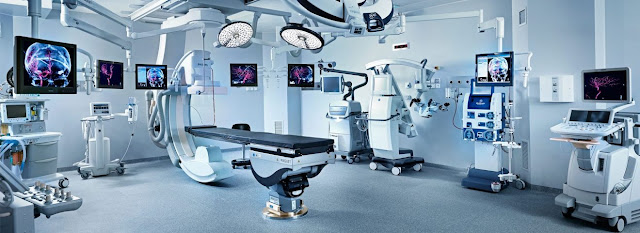 |
| Reprocessed Medical Devices |
As the world grapples with the challenge of sustainable healthcare, one promising solution has emerged: reprocessed medical devices. These innovative devices offer a cost-effective and environmentally friendly alternative to traditional single-use medical equipment.
Global
Reprocessed
Medical Devices Market is estimated to be valued at US$ 3,091.8 million in
2022 and is expected to exhibit a CAGR of 20.4 % during the forecast period
(2022-2030).
The
Rise of Reprocessed Medical Devices
Reprocessed medical devices are previously
used medical equipment that undergo a rigorous cleaning, testing, and
refurbishing process to ensure they meet safety standards for reuse. This
concept has gained traction due to the pressing need to reduce healthcare costs
and minimize medical waste. Reprocessing offers significant savings compared to
purchasing new devices, with studies showing cost reductions of up to 50%.
Additionally, by extending the life cycle of medical equipment, reprocessing
reduces the volume of medical waste, lessens the environmental impact, and
supports a more sustainable healthcare system.
Ensuring
Safety and Quality
Critics have raised
concerns about the safety and effectiveness of reprocessed medical devices.
However, reputable reprocessing companies adhere to strict regulatory
guidelines and employ advanced technologies to ensure the devices are
thoroughly cleaned, sterilized, and inspected. These companies employ highly
trained technicians who follow standardized protocols, including extensive
quality control measures. Furthermore, regulatory bodies such as the U.S. Food
and Drug Administration (FDA) closely monitor reprocessing activities to
guarantee patient safety. The efficacy of reprocessed devices has been
demonstrated in numerous studies, affirming their ability to perform as
effectively as new devices.
The
Environmental Impact
The environmental
benefits of medical devices are significant. By diverting medical equipment
from landfills, the healthcare industry can significantly reduce its ecological
footprint. Reprocessing a single device can save considerable amounts of
energy, water, and raw materials compared to manufacturing a new one. Moreover,
reducing the demand for new medical devices helps conserve resources and
decreases greenhouse gas emissions associated with manufacturing and disposal.
Reprocessed medical devices represent a vital step towards a more sustainable
healthcare system, aligning with the global commitment to combat climate change
and promote responsible resource consumption.
